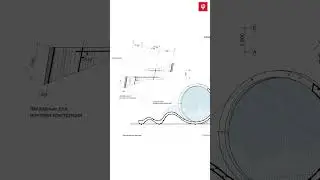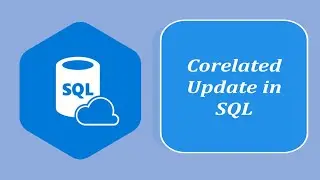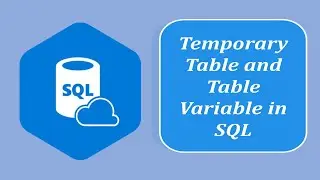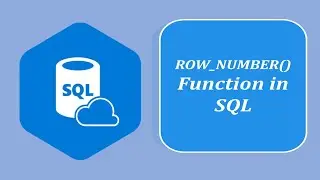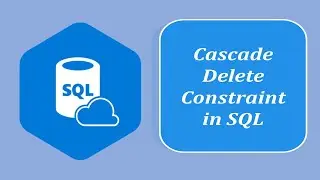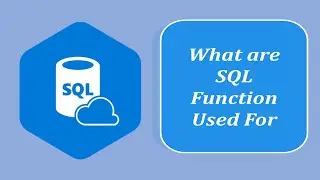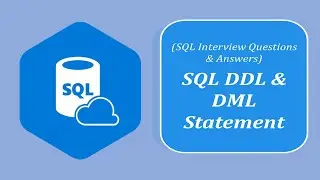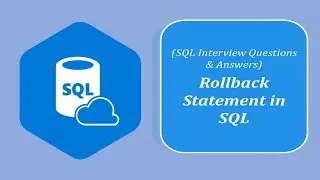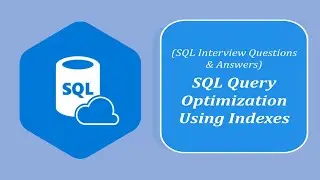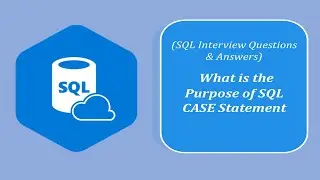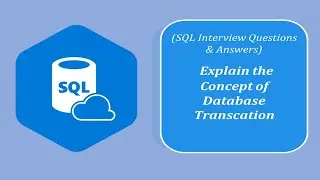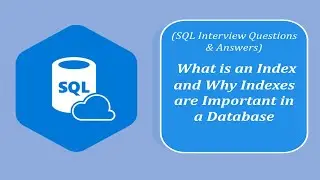SQL Interview Question and Answers | Describe the difference between CHAR and VARCHAR Data Types
In SQL, both `CHAR` and `VARCHAR` are data types used to store character strings (text). However, they have some key differences related to storage and behavior:
1. *Storage Size:*
*CHAR (Character):* `CHAR` is a fixed-length character data type. When you define a `CHAR` column, you specify a maximum length for the column, and each value stored in that column occupies the full allocated length, padding with spaces as needed. For example, if you define a `CHAR(10)` column and store the word "apple" in it, it will be stored as "apple " (with six spaces at the end).
*VARCHAR (Variable Character):* `VARCHAR` is a variable-length character data type. In contrast to `CHAR`, a `VARCHAR` column only uses as much storage as is required to store the actual data. So, if you store "apple" in a `VARCHAR(10)` column, it will only occupy six characters of storage, not ten.
2. *Space Efficiency:*
*CHAR:* `CHAR` is less space-efficient because it always uses the full allocated length, even if the actual data is much shorter. This can lead to wasted storage space in cases where values vary significantly in length.
*VARCHAR:* `VARCHAR` is more space-efficient because it only uses as much storage as necessary to store the actual data. It is a better choice when storage space is a concern.
3. *Performance:*
*CHAR:* Since `CHAR` columns have a fixed length, they can be slightly faster for some operations, such as searching, sorting, and indexing. However, this performance advantage may not be significant in modern database systems.
*VARCHAR:* `VARCHAR` columns may be slightly slower for certain operations because the database engine needs to account for varying data lengths. However, the performance impact is generally minimal and often outweighed by the space savings.
4. *Character Limit:*
*CHAR:* The maximum length for a `CHAR` column is fixed and defined when you create the table. For example, a `CHAR(10)` column can store up to 10 characters.
*VARCHAR:* The maximum length for a `VARCHAR` column is also defined when you create the table. However, you can store variable-length strings up to the specified maximum length. For example, a `VARCHAR(10)` column can store strings of varying lengths up to 10 characters.
5. *Padding:*
*CHAR:* `CHAR` columns pad values with spaces to meet the defined length, which can affect the way data is displayed and processed. This is important to consider when working with text data.
*VARCHAR:* `VARCHAR` columns do not pad values, which makes them more suitable for storing and displaying text without extra spaces.
In summary, the choice between `CHAR` and `VARCHAR` data types depends on your specific requirements. Use `CHAR` when you need fixed-length columns, and use `VARCHAR` when you want to save storage space or when your data varies in length. The choice can also be influenced by database performance considerations, but in most cases, these differences are not significant in modern database systems.
#sql


![HOW TO GET FISHMAN KARATE + SHOWCASE! [SQUARE PIECE]](https://images.videosashka.com/watch/hYK8KdZ8dW4)




